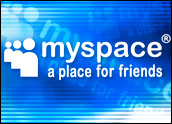
In a move echoing one made by rival Facebook earlier this year, MySpace plans to open its platform to third-party application developers.
The wildly popular social networking company owned by News Corp. plans to formalize its relationships with developers and will release a MySpace application programming interface (API) development platform in the coming months, the company confirmed Thursday.
It will also allow developers to monetize their applications, MySpace cofounder and CEO Chris DeWolfe reportedly said at O’Reilly Media’s Web 2.0 conference in San Francisco on Wednesday.
Sandbox Testing
Before the doors are officially opened, however, MySpace will first compile a list in the next few weeks of all widgets and tools available on the site so far, the company said. In a few months, it will make industry-standard APIs available through a new platform in which developers can try new ideas out in a sandbox environment.
Down the road, users will be able to participate in an opt-in beta test program to determine usability and vote to determine which widgets get tightly developed into MySpace. The best ones will be formally introduced by MySpace into the community with highly developed integration, the company said.
‘Something They Had to Do’
Facebook, which is MySpace’s principal rival, announced in May its Facebook Platform, which allows developers to build applications that integrate with its social networking site and enables them to make money by selling advertising on what’s known as their canvas pages.
“This is something MySpace had to do,” Paul Gillin, blogger, podcaster and author of The New Influencers, told TechNewsWorld. “The amazing popularity of Facebook and the stunning success of its decision have raised the barriers to play.”
MySpace is lagging behind Facebook in public opinion, Gillin noted, with a reputation for being not quite as innovative or open as Facebook. As a result, MySpace is “naturally trying to build on Facebook’s success with its decision to open up.”
Customers Benefit
The result will be a great benefit for customers, Gillin added, as new applications are brought into the environment, building the value of the community as a whole. “
This will make MySpace more of a destination and a real platform,” Gillin said.
“What Facebook is trying to do is make itself the place where people spend their day,” he explained. “The closer they can get to that goal, the more valuable they become as an advertising venue.”
Yet while MySpace’s move may be motivated at least in part by Facebook’s past decision, there may be more to it than that, Andrew Frank, research vice president with Gartner Group, told TechNewsWorld.
Openness vs. Protection
“I think there’s been a bit of a pendulum swinging back and forth between wanting widget platforms to be more open and concern about protecting revenue streams like advertising and also the overall integrity of the platform from a security standpoint,” Frank said.
“Right now, largely because of the success of Facebook, we’re starting to see more pressure to open up,” he explained. “But I’m pretty sure this isn’t the end of that oscillation — there’s definitely the potential that we haven’t seen the end of the balancing between openness and control.”
‘Distinctive Experiences’
Though they are often viewed as head-to-head competitors, MySpace and Facebook “still offer pretty distinctive experiences,” Frank added. “They may compete for time share among people with accounts on both sites, but I think people use them differently.”
MySpace, like all such sites, “has to continue to innovate to compete,” Frank noted. “But I don’t think this move is all about competing with Facebook.”
MySpace boasts 110 million active users worldwide. Facebook says it has more than 47 million.





















































